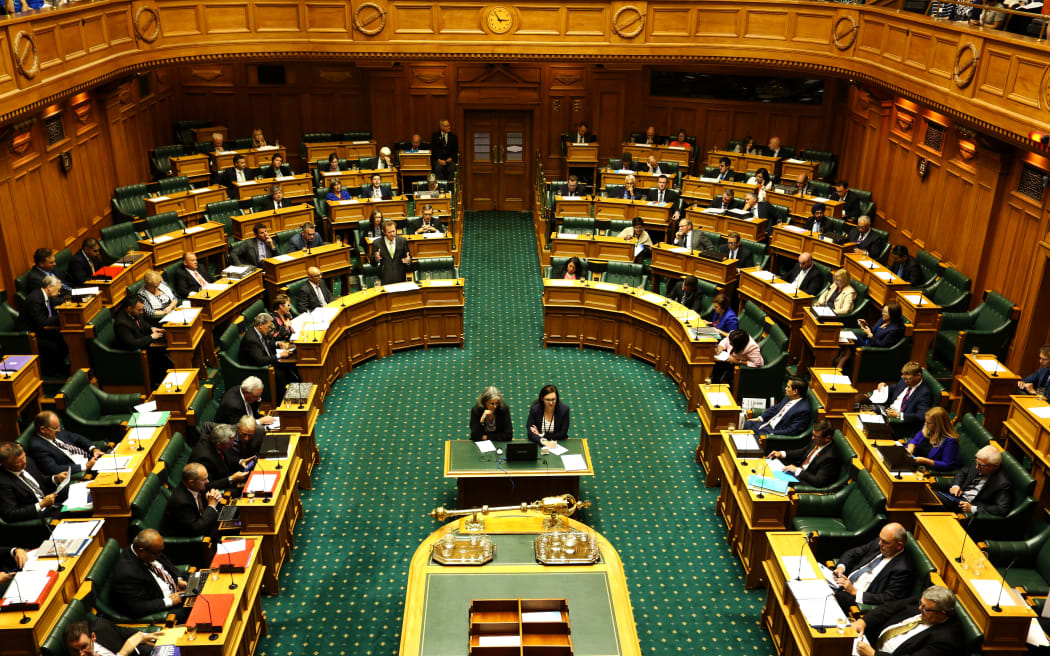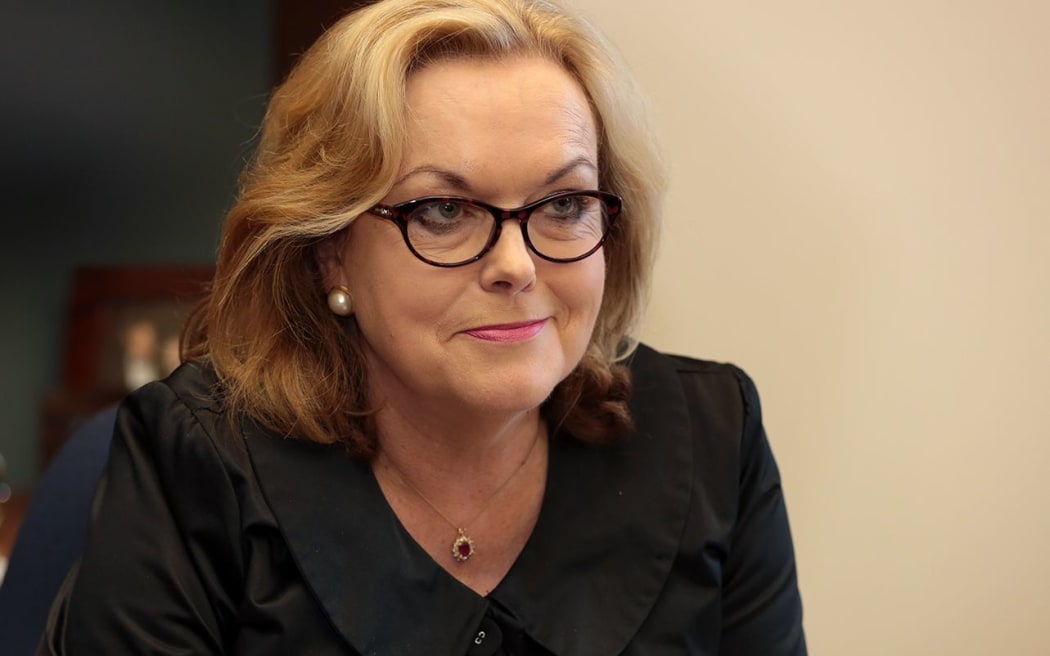The first duty of any government is to protect its citizens.
It is that sacred duty the Prime Minister, John Key, alluded to when he justified sending troops to Camp Taji to help train the Iraqi army.

Prime Minister John Key has said the mission to Iraq is about ensuring the safety of New Zealanders. Photo: RNZ / Alexander Robertson
Mr Key has said the mission is about ensuring New Zealanders are safe at home and overseas from the terrorist threat posed by Islamic State.
Does the protection of its citizens also refer to other initiatives the Government can take to make New Zealand a safer place?
For instance, is the Government fulfilling its duty to keep New Zealand citizens safe if it weakens, as expected, aspects of the Health and Safety Reform Bill?

The Health and Safety Reform Bill has passed its first reading in Parliament but is now stuck at select committee stage. Photo: RNZ / Alexander Robertson
That Bill was introduced to Parliament after careful consideration, and in the wake of the Royal Commission on the Pike River Mine disaster.
Unsurprisingly, following that disaster, there were calls for greater safety regulations in the country's mines.
But it also raised wider questions about safety in other New Zealand workplaces, and a recognition that what had been in place until now had not worked.
This country has one of the worst accident records of any developed nation.
So, while so far no New Zealander - as far as we know - has been killed by Islamic State, plenty have died at work.
In 2010, the year of Pike River, 77 died in workplace accidents. The following year, 49 died; then 48; 57 in 2013; and last year 47.
So far this year, 15 people have died on the job, a total of 293 deaths in less than six years.
Why then is the Government, nearly five years after the Pike River disaster, still delaying changes to the country's workplace safety regime?
The legislation was due to be reported back to Parliament on Friday. By all accounts, members of the Transport and Industrial Relations Select Committee had agreed on the detail of the Bill, including requiring all workplaces to have health and safety representatives.
Under the legislation those representatives would have the power to order work to stop if they believed workers were in danger.
Apparently employers, particularly small employers, objected to this aspect of the legislation and have been busy lobbying National MPs. Farmers, too, are upset about changes which would require them to pay more attention to farm safety.
Tougher safety requirements for farms should come as no surprise, given that, of the 293 workplace deaths since 2010, 100 have occurred in the agriculture sector.
But farmers and business represent a powerful lobby within the National Party, and they have prompted a backbench revolt against the proposed changes.

Former minister Judith Collins is thought to be leading the challenge to the bill. Photo: RNZ / Diego Opatowski
Former minister Judith Collins appears to be leading the challenge. Certainly she has been outspoken in expressing her concerns about the Bill.
That challenge has prompted a last minute halt to the progress of the Bill, which will now not be reported back to Parliament until 24 July.
But the Prime Minister says there is nothing unusual about that and denies there have been any ructions in the National Party caucus over the Bill. He has, however, confirmed National MPs have been lobbied extensively over the matter.
Opposition MPs now worry the Bill will be so diluted that it will have no impact on improving the country's lamentable workplace safety record.
The Green Party's workplace health and safety spokesperson, Denise Roche, says more people will die and be maimed in workplaces if the Government does undermine the Bill.
Ms Roche says the Government needs to take responsibility for future deaths under those circumstances.
Government MPs will argue their concern is about removing unnecessary red tape for businesses, not about undermining safety requirements. None are likely to accept responsibility for future accidents, just as no one has taken responsibility for weaker mine regulations, which were a factor in the Pike River Mine disaster.
In the interests of transparency, the select committee should release the Bill as it proposed to report back to Parliament this week, so it can be compared with what is actually reported back in July.
Then the public can make a judgement on whether the National Party caucus revolt was justified or not, and - perhaps more importantly - judge whether the Government is fulfilling its sacred duty to protect its citizens.

